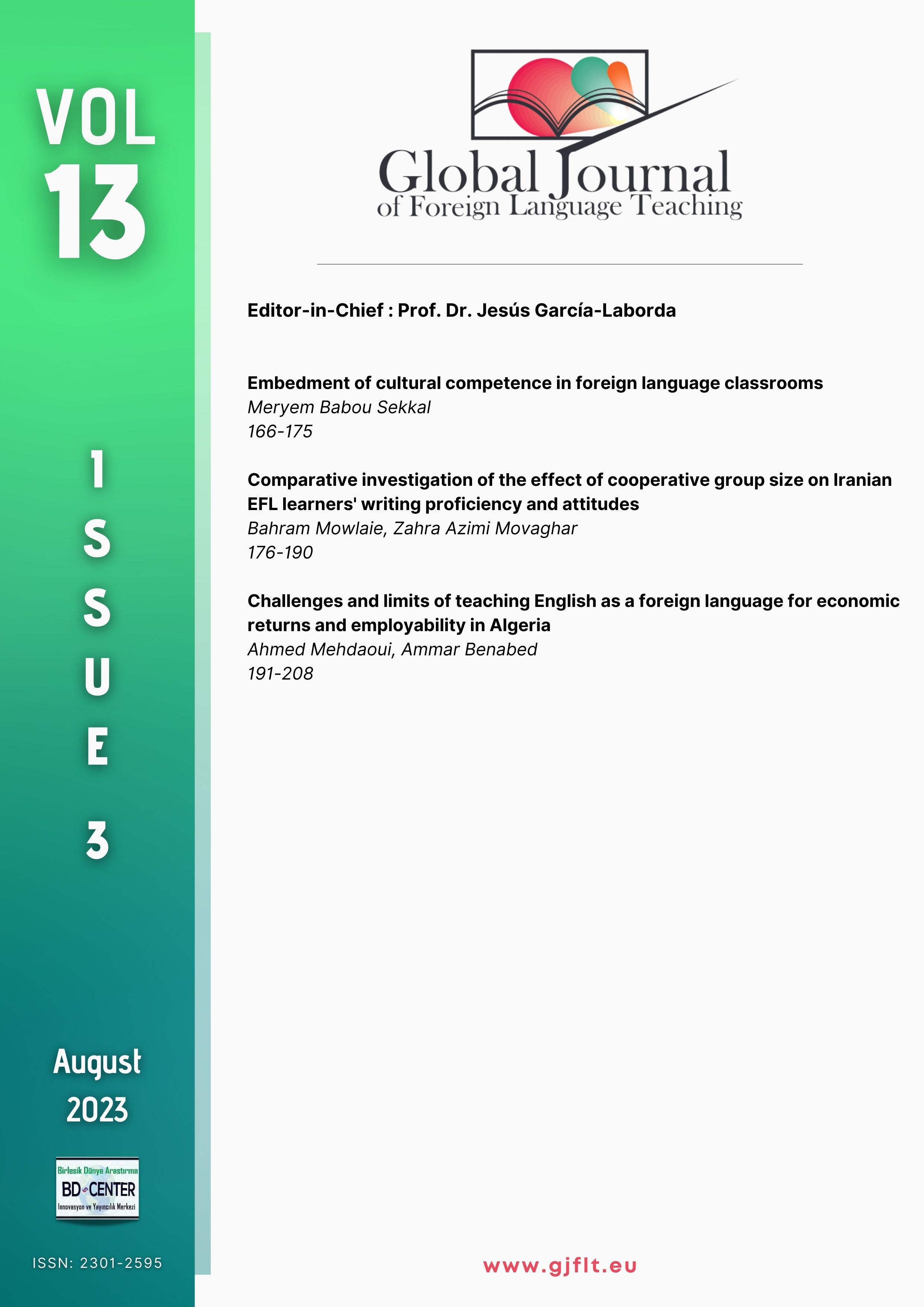Challenges and limits of teaching English as a foreign language for economic returns and employability in Algeria
Main Article Content
Abstract
This study is driven by the fact that English is welcomed everywhere for economic purposes. Algeria, like many countries, has taken several measures towards improving the English language as part of broad economic development programs. However, Algeria’s investment in English has little impact on the country's economy and individuals’ potential for employment. Research to explore the reasons behind such problems and thus provide myriad suggestions is scarce. Therefore, our primary goal in this work is to provide insights into the challenges and the existing gaps associated with the provision of English language skills as a drive for Algeria’s economic advantages. This study uses a content analysis method that relies on local academic library resources and reports from foreign consultancies and organizations, which have been conducted to identify some common features pertaining English teaching and learning situation in Algeria. The findings constructed from our analysis revealed several gaps that thwart the teaching of English as a driving force for Algeria's economic advantages due to various reasons, detailed in the research.
Keywords: Economy; English; English as a foreign language; employability.
Downloads
Article Details

This work is licensed under a Creative Commons Attribution-NonCommercial-NoDerivatives 4.0 International License.
Authors who publish with this journal agree to the following terms:- Authors retain copyright and grant the journal right of first publication with the work simultaneously licensed under a Creative Commons Attribution License that allows others to share the work with an acknowledgement of the work's authorship and initial publication in this journal.
- Authors are able to enter into separate, additional contractual arrangements for the non-exclusive distribution of the journal's published version of the work (e.g., post it to an institutional repository or publish it in a book), with an acknowledgement of its initial publication in this journal.
- Authors are permitted and encouraged to post their work online (e.g., in institutional repositories or on their website) prior to and during the submission process, as it can lead to productive exchanges, as well as earlier and greater citation of published work (SeeThe Effect of Open Access).
